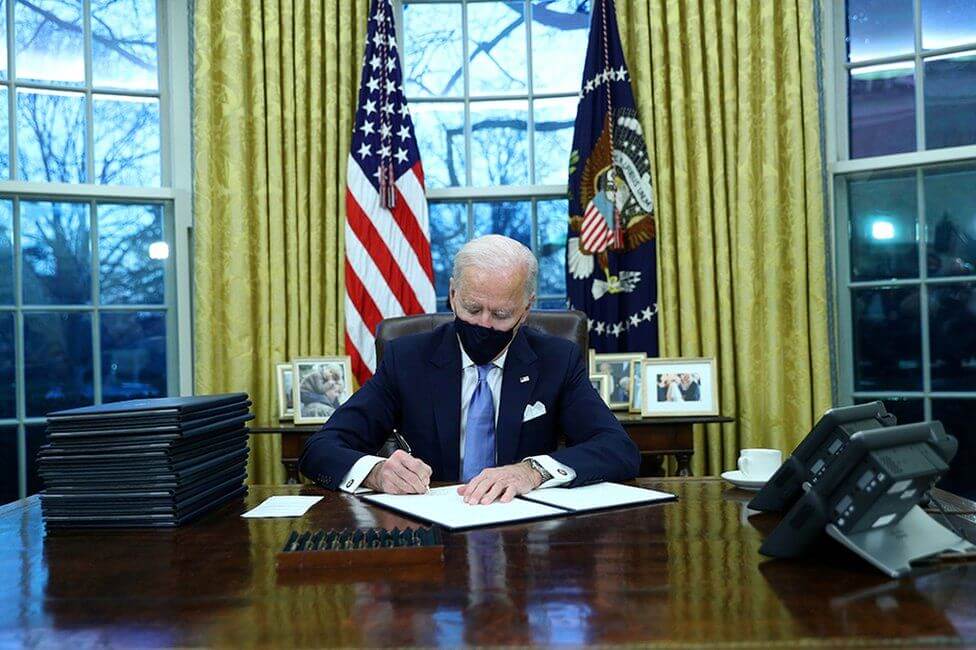
Biden Takes Actions to Protect LGBTQ Rights Worldwide
President Joe Biden delivered his first major foreign policy speech during a visit to the State Department where he indicated he would place diplomacy at the center of U.S. foreign policy.
“America is back,” Biden told State Department staff that had assembled in person and virtually to hear him deliver a separate address beforehand. “Diplomacy is back. You are the center of all that I intend to do. You are the heart of it.” He also signed a presidential letter on Thursday that he said would “reinvigorate our leadership on the LGBTQI issues and do it internationally.”
“We’ll ensure diplomacy and foreign assistants are working to promote the rights of those individuals included by combatting criminalization and protecting the LGBTQ refugees and asylum seekers,” Biden said.
In addition, the president said he approved an executive order to begin the process of raising the maximum number of refugees allowed into the U.S. every year to 125,000, beginning in fiscal year 2022, which for the U.S. government begins on Oct. 1. Former President Donald Trump had slashed the total number to 15,000, and raising it involves a process in which Congress plays a role.
“I’m approving an executive order to begin the hard work of restoring our refugee admissions program to help meet the unprecedented global need,” Biden said. “It’s going to take time to rebuild what has been so badly damaged, but that’s precisely what we’re going to do.”
“I’m approving an executive order to begin the hard work of restoring our refugee admissions program to help meet the unprecedented global need,” Biden said. “It’s going to take time to rebuild what has been so badly damaged, but that’s precisely what we’re going to do.”
The International Rescue Committee’s vice president of resettlement, asylum and integration, Hans Van de Weerd said the move was “great news for refugees,” but he did not expect numbers to rise immediately.
“The way that the president announced this news — really going back to the values of the country, the values of welcome and really expressing that the U.S. wants to take a role, that was a very important moment,” he said.
At the State Department, the first federal agency he has visited in person as president, Biden announced an end to U.S. support for the Saudi-led military campaign in Yemen. The halt would not include U.S. action against al-Qaida in the Arabian Peninsula, Biden’s national security adviser, Jake Sullivan, told reporters earlier in the day.

